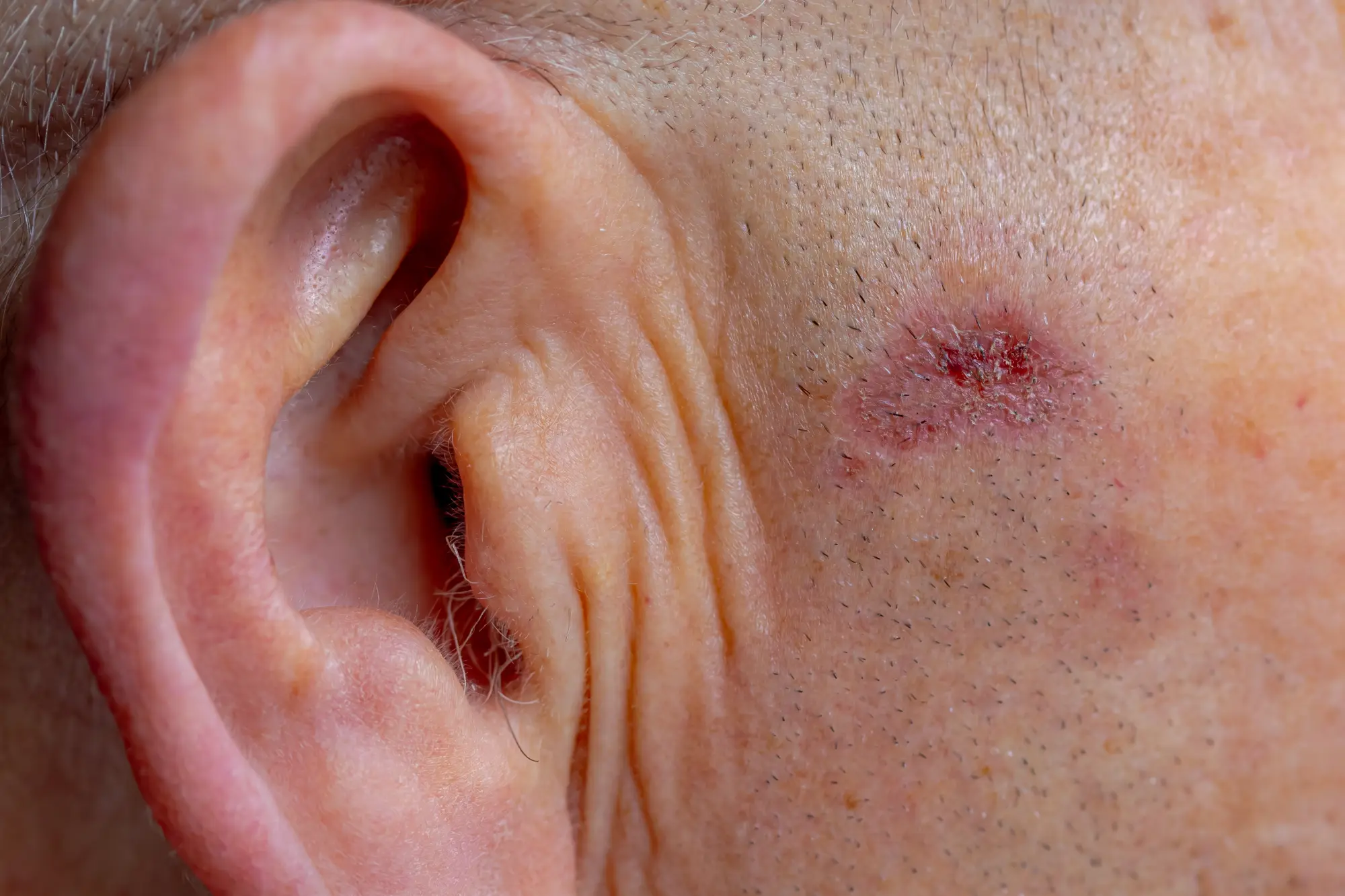
Types of Skin Cancer
- Home
- Types of Skin Cancer
Skin Cancer Diagnosis and Treatment Biltmore Dermatology Terre Haute & Vincennes
Skin Cancer Diagnosis and Treatment
Early detection saves lives — and real options give patients real control. Skin cancer is the most common form of cancer in the United States, but with early diagnosis and the right treatment plan, it's also highly treatable. At Biltmore Dermatology, we believe in clear information, patient-first options, and compassionate, medically sound care.
Understanding Skin Cancer
Skin cancer occurs when skin cells grow abnormally, often triggered by UV radiation from sun exposure or tanning beds. There are several different types — each with different behavior, risks, and treatment needs.
Actinic Keratosis (Precancerous Lesions)
- Scaly, rough patches on sun-exposed areas (face, scalp, ears, hands)
- Considered precancerous — if left untreated, some can evolve into squamous cell carcinoma
- Treatment can prevent the progression
Catch it early. Treat it early.
Basal Cell Carcinoma (BCC)
- Most common type of skin cancer
- Slow-growing but can damage nearby tissue if untreated
- Often appears as a pearly bump, flat scar-like area, or non-healing sore
- Rarely spreads (metastasizes), but early treatment prevents deeper invasion
Early BCC is often treated with non-surgical methods — depending on location and depth.
Squamous Cell Carcinoma (SCC)
- The second most common skin cancer
- Can grow faster than BCC and sometimes spread if untreated
- May appear as a red, scaly patch, wart-like growth, or sore that doesn't heal
- Strongly associated with cumulative sun exposure over time
SCC detected early is highly treatable — and patient outcomes are excellent with the right approach.
Melanoma
- The deadliest form of skin cancer — but also treatable if caught early
- Can develop in an existing mole or as a new dark spot
- ABCDE rule (Asymmetry, Border, Color, Diameter, Evolving) helps detect suspicious changes
- Requires urgent attention and usually surgical removal
We refer high-risk melanomas promptly to trusted specialists for full oncologic care.
Our Approach to Skin Cancer Care
At Biltmore Dermatology, our priorities are simple:
- Find it early
- Treat it properly
- Support the patient every step of the way
We perform thorough skin exams, and biopsies when needed, and offer advanced treatment options for non-melanoma skin cancers right here in our Terre Haute and Vincennes offices.
Skin Cancer Treatment Options at Biltmore Dermatology Image-Guided Superficial Radiation Therapy (IG-SRT)
For many patients with early-stage Basal Cell Carcinoma or Squamous Cell Carcinoma,
IG-SRT offers a non-surgical, non-invasive treatment option:
- Painless, outpatient procedure
- No needles, no cutting, no stitches
- Preserves cosmetic appearance — especially valuable for facial, scalp, and delicate areas
- High cure rates comparable to surgical options for appropriate cases
- Safe for patients who are not surgical candidates
We use imaging technology to precisely map and treat skin cancer at the surface — maximizing effectiveness while protecting surrounding healthy tissue.
When Surgery Is Appropriate
Some skin cancers — especially deep, aggressive, or high-risk tumors — require traditional surgical management. Mohs surgery remains an excellent option for specific cases, offering tissue-sparing removal with immediate margin assessment.
At Biltmore Dermatology, we coordinate with trusted surgical specialists when necessary. Our goal is not to steer patients toward one method — but to recommend the right method for each case.
Want to understand how IG-SRT compares to Mohs Surgery?
Explore the differences here.
Early Detection Matters
The earlier skin cancer is found, the easier it is to treat — and the better the cosmetic and health outcomes.
That's why we recommend:
- Annual Yearly Skin Exams (especially for patients with a history of sun exposure or prior skin cancers)
- Prompt evaluation of any new, changing, or suspicious spots
- Clear follow-up plans after any skin cancer treatment
Skin cancer doesn't wait — but neither do we.
Why Choose Biltmore Dermatology?
- 24+ years of dermatology experience
- Board-certified dermatology provider Ryan T. Patterson, NP-C, DCNP
- Board-certified radiation therapy team
- Advanced non-surgical treatment options with IG-SRT
- Honest, patient-first discussions about all available treatments
- Trusted by Terre Haute, Vincennes, and surrounding Indiana communities
We don't sell treatments. We offer care — based on real science, real experience, and real results.
Don't Wait Until It Hurts
Skin cancer often starts silently — no pain, no alarm. If you notice a changing mole, a non-healing sore, or a suspicious new spot, early action matters.
No referral is needed. Walk in today. Stay for the care and expertise.
Come for answers. Come for early detection. Come for the care.